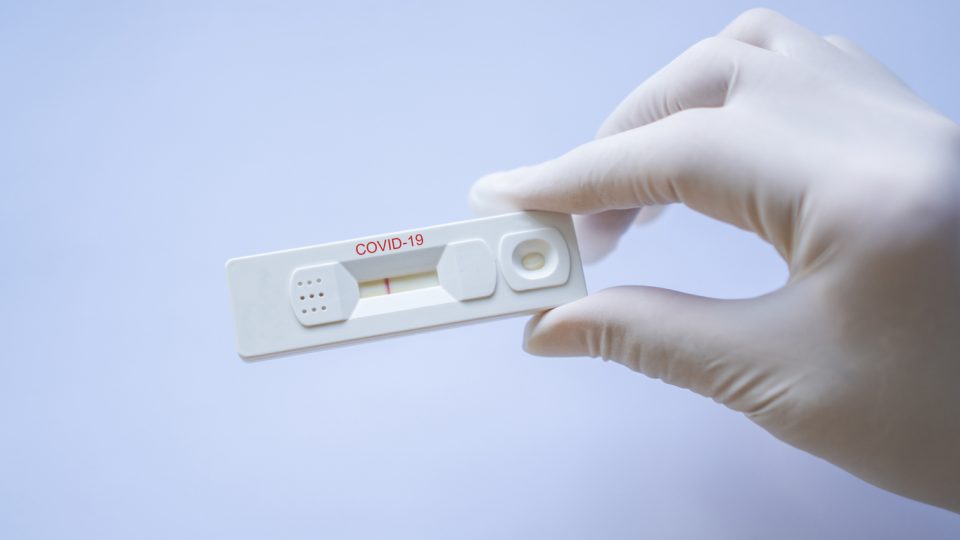
Keralites bank on COVID self-test kits, experts give mixed views

Kerala, which is logging the second highest COVID-19 cases in the country, has shown an increasing trend in the usage of self-test kits. The trend, however has received mixed response from experts.
While a school of experts have welcomed the trend as it is a hassle-free way to test oneself for the virus and go into isolation at the earliest, reducing the burden on the administration, others are sceptical about the efficacy and practicality of these tests.
One of the important concerns raised by experts is that positive cases detected under this test are not registered in any data pool. They say, this explains why the state is showing a slump in daily infections amid the Omicron wave in the country. As on January 3, 2022, there are only 19,359 people who are currently infected by SARS-COV-2 in Kerala (including 2,560 new cases in the past 24 hours).
According to Dr Vinod Scaria, scientist at CSIR Institute of Genomics and Integrative Biology, self-tests would be the easier and faster method, considering the surge of the Omicron variant. “A fast spreading virus needs a faster decision-making to contain,” says Dr Scaria.
Dr Arun NM, a public health expert, however, says self-tests have “no accountability”.
“The government has no monitoring and control over these tests. The positive cases are not counted. There is no mechanism to check whether they (the patients) stay in isolation and quarantine,” says Dr Arun.
Dr KP Aravindan, a member of the government’s expert panel for COVID management says the even though the chance of getting false negative results is high for self-test kits among other handicaps, they have their own advantage.
“It would certainly be helpful for those who keep the protocol. People do not have to wait for 10 to 12 hours to get the result as they have to do in RT-PCR tests. This would help in reducing the spread of the virus,” he says. He agrees that a patient’s initiative to isolate completely depends on his or her social responsibility and awareness about COVID-19.
“In Thrissur district, I distribute around 2,000 to 2,500 self-test kits on an average a month. There has been a rising trend in the use of the self-test kits,” Jolly Stephen, a wholesale dealer of medicines and medical equipment in Thrissur.
Despite being a dealer of self-test kits, Stephen is sceptical about the practicality of such tests although he agrees that it helps people get the result at the earliest. “There is no mechanism to monitor. People keep it confidential if they test positive, they do not isolate themselves if they have no health issues or are asymptomatic,” Stephen claims, based on his experience and feedback from clients.
Those running testing laboratories have opposed the widespread use of self-test kits.
“The arbitrary use of self-test kits is not desirable,” C Balachandran, the state president of Medical Laboratory Owners Association tells The Federal. “The government has no control over it, there is no mechanism to keep the counts. Moreover, the disposal of such kits is a cause of concern. What do people do after using these kits? Do they throw it away? There is no protocol or regulating mechanism on such things,” he says.
The association has submitted a representation to the Kerala government, urging it to revoke its ban on antigen tests by private labs in the state as well as bring a monitoring mechanism on the use of self-test kits.
“There is restriction for private hospitals to conduct antigen tests, but self-test kits are widely available in the market. What is the rationality of restricting private labs from conducting antigen tests”? Balachandran asks, expressing doubts over the accuracy of self-test kits.
He reinstated the point that the chance of self-test kits showing false negative results is quite high.
“Some kind of a test is always better than no test,” Dr Scaria says, while not dismissing the concerns expressed by doctors and clinical analysts regarding the efficacy of self-test.
He also says that a judicious use of self-test would be helpful in controlling the spread of the virus.
“In foreign countries, self-tests are being used for the purpose of attending a public function or for going to a gathering. On such occasions, self-test is quite helpful. That apart, self-testing is useful when there is large scale community spread,” Dr Scaria says, adding that if there is a surge, any test providing quick result would be the best option despite its limitations.

